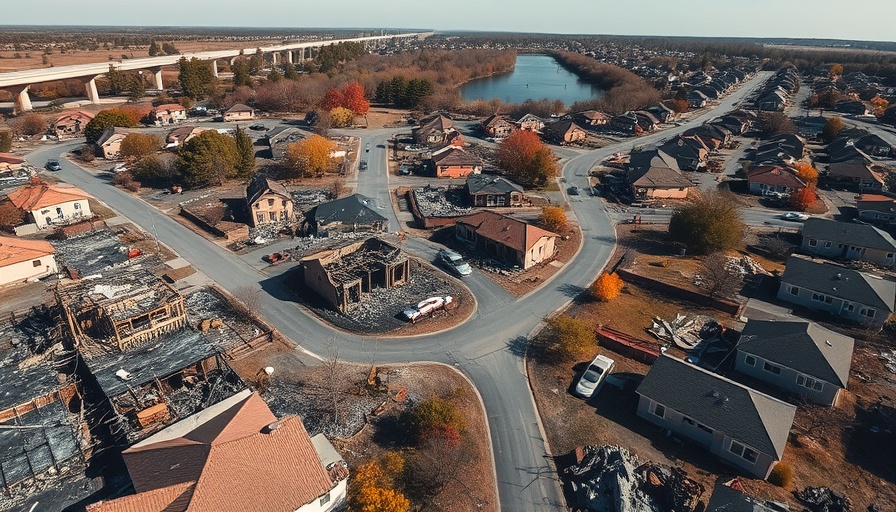
Rebuilding Los Angeles: A Community's Resilience
The recent wildfires that swept through Los Angeles last January left devastating scars on the landscape, but more importantly, they impacted the lives and communities within this vibrant city. Neighborhoods like Pacific Palisades, Altadena, Eaton Canyon, and Malibu were among the hardest hit, with 30 lives tragically lost and over 180,000 residents forced to evacuate. As the city of angels grapples with the aftermath, one question looms: how do we rebuild?
Understanding the Housing Crisis Amplified by Disaster
Before the fires, a housing crisis plagued Los Angeles, with average rents sitting around $2,200 per month, pushing families and individuals to the brink of financial ruin. The destruction of nearly 17,000 structures in the recent fires has exacerbated an already dire situation.
In a city where obtaining affordable housing was already a tremendous challenge, these fires left many homeless, scrambling for temporary shelter in a market that has very little to offer. With rental prices jumping to above $2,500 per month, families are feeling the financial strain more than ever. The demand for temporary accommodations has skyrocketed, further stressing the already fragile housing market.
Hope Amidst Destruction: A Collective Effort to Reimagine the Future
However, amidst the rubble and despair, there is a flicker of hope. Los Angeles' local leaders, organizations, and residents are banding together to plan not just for recovery, but for a future that is smarter and more resilient. The push to rebuild homes that withstand future disasters is becoming a priority.
This effort is not merely about physical structures but about reimagining the urban fabric of Los Angeles itself. Community initiatives are looking at sustainable practices to avoid repeating history and for the city to thrive beyond its past challenges.
During Recovery: Community and Support Systems
The need for support and community solidarity during this difficult time cannot be overstated. Many local organizations have mobilized to provide resources ranging from temporary housing solutions to emotional support services for those affected. Whether it's food drives, counseling services, or rebuilding workshops, there are countless ways for Angelenos to get involved and lend a helping hand.
Those interested in assisting can contribute time or resources, whether through charitable donations or volunteer work with local relief organizations. The community spirit, though tested, has never been stronger, proving that when faced with adversity, L.A. residents pull together to lift one another up.
Emotional Resilience: Finding Strength in Connection
Beyond just homes and physical structures, the fires have disrupted the very fabric of people's lives, causing losses that can't be measured solely in monetary terms. Schools have been damaged, businesses reduced to ashes, and the emotional toll on families is profound.
This shared experience of loss and recovery can be a powerful driving force for collective healing. Community support systems play a crucial role, allowing people to connect, share, and rebuild not just homes but lives too.
Looking Ahead: Building a Sustainable Future
As Los Angeles begins to emerge from the ashes, it is crucial to prioritize sustainable living practices in the reconstruction efforts. The goal is to not only recover from the current devastation but to advocate for a greener, more resilient city structure that prepares future generations.
With proper planning and resilient designs, we can create neighborhoods that are not just rebuilt but also reimagined for the better, ensuring safety and sustainability for years to come.
In these times of uncertainty, let’s remember that recovery will require not just rebuilding homes, but rethinking the way we approach housing and community resilience. It’s a call to action for all who want to help redefine Los Angeles in its path forward. Together, let’s make this a pivotal moment for change.
Consider lending your support to local recovery efforts. Every action counts, from donating to organizations working on the ground to volunteering your time. Together, we can help rebuild not just a city, but a community.
 Add Row
Add Row  Add
Add 




Write A Comment